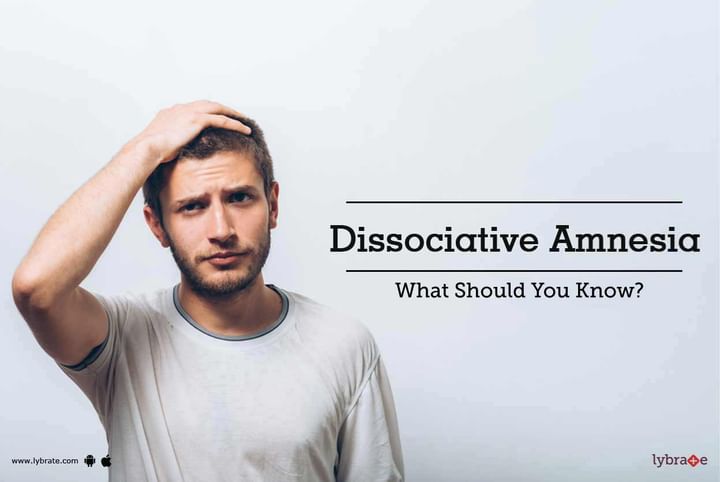Dissociative Amnesia - What Should You Know?
In many cases, the body responds to a stressful or traumatic situation by disassociating with it. This can result in the development of a dissociative disorder. A dissociative disorder or dissociative amnesia is a mental illness that involves the breaking down of memory, consciousness, identity and perception. It can interfere with a person's general functioning, social life and relationships. People suffering from dissociative amnesia can have long gaps in their memory of the accident and the time before and after it.
Women are at a higher risk of suffering from this condition as compared to men. It has also been found to have a genetic link as people suffering from this condition often have other members of their family who experience something similar. Manmade and natural disasters such as wars, floods, earthquakes etc that cause overwhelming stress is said to trigger this disease.
The inability to recall past events is a primary symptom of this disease. Other symptoms include:
- Depression or anxiety
- Inability to remember personal information
- Substance abuse
- Mood swings
- Sexual dysfunction
- Panic attacks
- Obsessive compulsive symptoms
- Hallucinations and
- Social withdrawal
Treatment for this disease is a two step process. The first step involves relieving symptoms and controlling any behavioral changes. The second step aims at helping the person to recall and process their memories. Developing coping skills and rebuilding relationships is also focused on. Depending on the individual and the severity of symptoms showcased a doctor may choose to treat the patient using any of the following forms of treatment.
- Psychotherapy: This form of treatment is designed to encourage communication and give the person insight into their problems. It uses a number of psychological techniques.
- Cognitive therapy: Changing dysfunctional thinking patterns and their resulting emotions and behavior patterns is the focus of this form of treatment.
- Medication: Dissociative amnesia patients who also suffer from depression or anxiety can benefit from medication such as anti depressants and anti anxiety drugs. However, this medication does not treat the dissociative amnesia itself.
- Family therapy: In some cases, along with the patient it is also necessary to counsel the family. Family therapy involves educating the family members about the disorder and symptoms of recurrence.
Clinical hypnosis: This type of treatment uses intense relaxation and focused attention techniques to access the unconscious part of the mind and allow people to explore their thoughts, emotions and repressed memories.



+1.svg)
